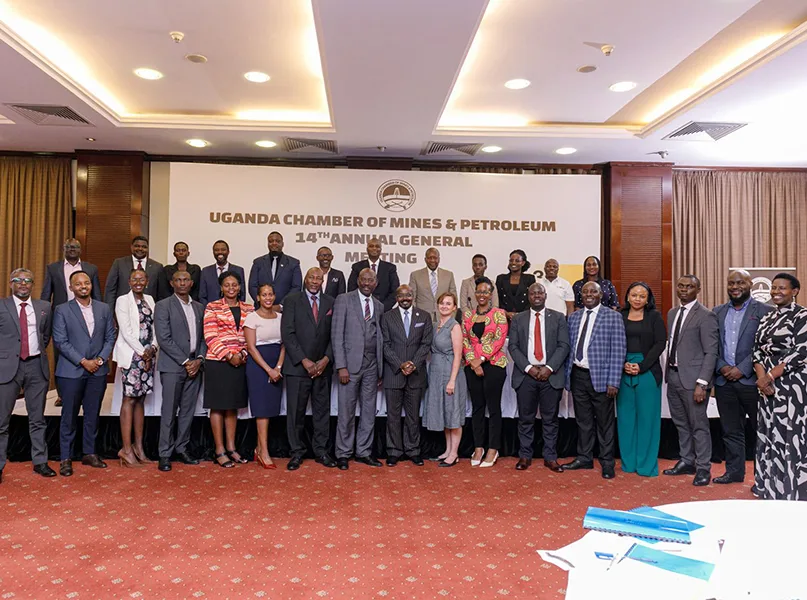Uganda’s abundance of natural mineral deposits, coupled with its lucrative ongoing oil and gas exploration, present a burgeoning extractive sector with the potential to enable continued socioeconomic development.
SPOTLIGHT ON UGANDAN MINING AND PETROLEUM
With notable deposits including gold, copper, high-grade tin, tungsten, salt, beryllium, cobalt, kaolin, iron ore, glass sand, vermiculite, phosphates (for fertilisers), uranium, and rare earth elements, Uganda’s mineral resources are rich and diverse.
However, despite this breadth, the country’s mineral potential has not been extensively leveraged, leaving the sector behind its counterparts in Botswana, Tanzania, South Africa, and Zimbabwe.
Furthermore, challenges such as inadequate infrastructure in remote areas, limited geological data, and the need for improved regulatory enforcement must be addressed.
As such, Uganda’s National Development Plan number four (NDPIV) emphasises the implementation of the Mining and Minerals Act, 2022 to address difficulties in the sector by promoting local growth and creating a conducive environment for mining operations.
The government has also introduced incentives including tax holidays to lessen costs and attract investors to the largely unexplored sector, whilst it further seeks to establish its first Uganda National Mining Company to manage commercial and participating interests in mineral agreements.
Moreover, the industry anticipates the additional formalisation of operations through new laws, including licensing artisanal and small-scale mining (ASM), scaling up the biometric registration system, and fast-tracking the construction of water facilities for industrial use.
As global demand for minerals gradually rises, it is hoped such initiatives will help lower production costs, increase returns on investment (ROI), and expand the availability of locally manufactured mineral products such as cement, iron, and steel in the country.
On the other hand, the Ugandan government continues to make new discoveries in the oil and gas sector with significant recent investments for new projects and supportive infrastructure.
These projects include the Tilenga and Kingfisher projects, the East African Crude Oil Pipeline (EACOP), and the Uganda Refinery project, all of which represent the nation’s renewed focus on oil and gas exploration.
At the same time, to ensure the sustainable development of petroleum resources is in tandem with the current dynamic global environment, The Ministry of Energy and Mineral Development (MEMD) is currently finalising its review of the National Oil and Gas Policy, which seeks to contribute to the early achievement of poverty eradication and create a lasting value for society.
In this way, balancing economic growth, social development, and environmental conservation remains a priority as Uganda navigates its path to prosperity in the oil and gas sector.
Q&A WITH HUMPHREY ASIIMWE, CEO, UGANDA CHAMBER OF MINES AND PETROLEUM
Humphrey Asiimwe, CEO of Uganda Chamber of Mines & Petroleum, unpacks the opportunities and challenges facing Uganda’s extractive sector and its role as a key driver of the country’s socioeconomic development.
Firstly, could you talk us through the beginnings of the Uganda Chamber of Mines & Petroleum and its original vision and mission?
Humphrey Asiimwe, CEO (HA): The Uganda Chamber of Mines & Petroleum (UCMP) is a not-for-profit, member-based, voluntary organisation representing private players’ interests in Uganda’s extractive sector, specifically petroleum and mining, whilst working closely with the state to develop the sector.
Launched in 2010, UCMP coordinates and facilitates information sharing, advisory, and administrative support to prospective and current investors in Uganda’s mining and petroleum sectors.
It also promotes, encourages, protects, and fosters responsible mining, beneficiation, and service delivery.
UCMP’s activities are linked to five main goals – lobbying and advocacy, R&D, business support services, stakeholder engagement, and efficient internal organisation.
What is your current take on the extractive sector in Uganda? Is it a particularly exciting or challenging environment to work in?
HA: The extractive sector in Uganda is exciting. First, the government banned the export of unrefined minerals to promote value addition, earn the country significant export revenues as well as create jobs and other opportunities.
Uganda’s National Development Plan number three (NDPIII), running from 2020/21-2024/25, prioritised the development of five categories of minerals, namely iron ore, gold, copper, phosphates, and development minerals (marble, silica sand, aggregate, and limestone). This was largely carried out to ascertain their commercial viability and to devise relevant data.
The government is clear in NDPIII and the new NDPIV, where it set specific fundamentals such as infrastructure and human capital development and good governance, amongst others, that will foster possibilities for full value chain development across the sector.
In recent years, the country has also reported tremendous progress in attracting investments into the exploration of green energy minerals that include rare earth elements, graphite, copper, cobalt, manganese, lithium, and nickel.
The Mining and Minerals Act, 2022 is expected to further boost the sector’s growth from primary production and throughout the entire value chain.
Meanwhile, for the oil and gas industry, a lot has already been achieved since the signing of the final investment decision that kickstarted the sector’s development stage.
The latest numbers indicate that a total of USD$7.5 billion had been invested in the sector by the end of 2023, with USD$1.09 billion and USD$1.93 billion invested in 2022 and 2023, respectively.
The drilling of oil wells at Kingfisher (operated by CNOOC Uganda Limited) and Tilenga (operated by TotalEnergies) is underway as the nation anticipates its first oil discovery in the financial year 2025/26.
Critical infrastructure such as roads has been developed in the Albertine oil region, with more in the pipeline.
We have seen a significant number of Ugandans securing jobs in the sector and other Ugandan companies winning contracts.
Two big projects, including the EACOP and the refinery, are being fast-tracked by the government, and we expect these to further fuel the sector’s growth at the commercial stage.
How does UCMP represent the private sector and promote the interests of its members?
HA: Our work is aligned with different sectors including oil and gas exploration, labour, skilling and entrepreneurship, the quality health safety environment (QHSE) framework, insurance, legal and compliance, media and communications, logistics and transport, engineering and construction, manufacturing, mining and mineral development, and finance and energy.
We run targeted media campaigns, such as 90 Days of Oil and Gas, geared towards information gathering and dissemination to educate investment and related decisions.
We often hold high-profile sector conferences and meetings with industry players to achieve our mandate. Annually, we organise the Oil and Gas Convention (OGC) recently held in April this year, and the Mineral Wealth Conference, the 13th of which was held in early October.
These conferences bring together national and international participants to share industry updates, including opportunities, challenges, and business prospects.
Alongside these two significant events, we also hold sector meetings throughout the year targeting the different subsectors aligned to the extractive sector.

What other specific goals does UCMP have, and what strategy have you adopted to achieve these goals?
HA: Broadly, we are the go-between for the government and the private sector when it comes to advocating for the right environment for the extractive sector.
We have set the bar high for our national annual events, which include the Mineral Wealth Conference, OGC, and media campaigns for all sector players across the globe to converge and deliberate on issues critical for defining the future of the extractive sector.
We are acutely aware of the conversation on environmental, social, and governance (ESG) issues and the global energy transition debate. We agree with the government’s ‘first in, first out’ view as outlined in the Energy Transition Plan (ETP), given its ongoing contribution to the fight against energy poverty.
We intend to rebrand UCMP to cover other areas of energy beyond petroleum. This is a work in progress across different levels of our organisation.
We look forward to forging more formal partnerships with relevant sector players including development partners and other private sector groups to push the industry’s agenda forward.
How do you see the extractive sector in Uganda developing over the next five years?
HA: The mining sub-sector alone is expected to attract big investments to the country’s priority minerals industry.
The formalisation of ASM and the lack of an institutional framework among other issues had previously hampered the subsector’s growth, but with the new Mining and Minerals Act, 2022, the sector is heading in the right direction.
UCMP remains focused on contributing to any changes in policy and updates to the regulatory environment in the interest of its members and the sector in general.
Across the oil and gas industry, we expect to see more investments of over USD$15 billion as Uganda awaits commercial production of its oil resources.
Finally, what are your key priorities to continue representing Uganda’s extractive sector players?
HA: We want to continue advocating for a supportive investment environment for our members and the private sector in general. This environment includes authorities upholding National Content provisions which broadly involve Ugandans and Ugandan companies.
We will also continue to collaborate with sector players to improve the capacity of our members in key areas of ESG, corporate governance, access to affordable credit, and pushing for workable joint ventures.
Other areas of interest include having a fair tax regime for sector players and granting our members access to information to inform their planning and investment decisions.
We are keen to expand our mandate to include other forms of energy beyond petroleum to provide our members with services aligned to emerging global issues.







































